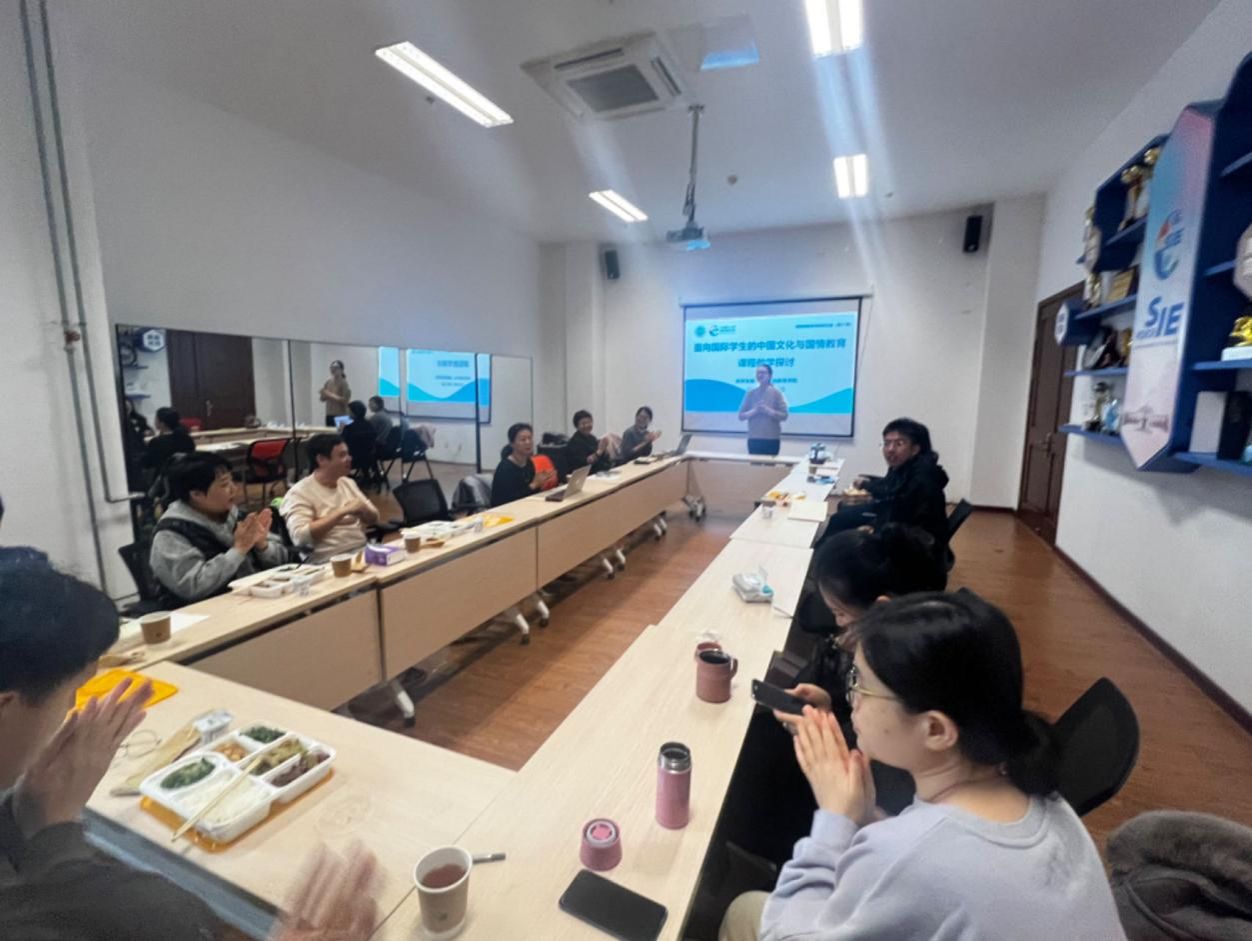On November 15, 2024, the seminar on teaching of china's national conditions and Chinese culture 21st was successfully held in Haichuan Building D107 at Dalian University of Technology. Themed "Exploring Ways of Teaching Chinese Culture and National Conditions to International Students," the event was chaired by Associate Professor Guo Hanning, Assistant Dean of SIE, with invited speakers of Associate Professors Xu Dan and Guo Xiaoyu, who together facilitated an exchange on teaching Chinese culture and national conditions to international students.

Associate Professor Xu Dan addressed the theme of "Language Teaching and Cultural Dissemination," analyzing the profound significance of teaching Chinese culture and national conditions from four key perspectives: enhancing national soft power, promoting cultural exchanges and people-to-people understanding, advancing the substantive development of education to international students, and cultivating globally-minded friendly talents. She introduced practical methods and approaches for leveraging educational resources effectively in teaching practice.
Following this, Associate Professor Guo Hanning explored "Teaching Models for Courses on Chinese Culture and National Conditions for International Students," starting from the "Reference Framework for Teaching Chinese Culture and National Conditions in International Chinese Education." She answered three fundamental questions: "Why to teach?", "What to teach?", and "How to teach?" Combining her own teaching experience, she systematically explained how to clarify teaching objectives, plan contents scientifically, and choose flexible teaching methods suitable for international students, providing highly valuable guidance and insights.
Additionally, Associate Professor Guo Xiaoyu discussed "Cross Culture Communications at International Classes " focusing on the mission of cultivating international students. She delved into the importance, implementation pathways, and considerations of cross cultural communication in internationalized classrooms. Sharing her rich teaching experiences and insights, she offered valuable practical wisdom and reflections to the attending teachers.

During the interactive exchange session, Professors Feng Xiao from the School of Chemistry and Wu Peng from the School of Energy and Power Engineering raised targeted questions about the responsibilities of international student supervisors, communication in guiding studies, and international academic collaboration. They engaged in in-depth discussions and exchanges with the guest speakers. The atmosphere throughout the event was enthusiastic, and participants expressed great satisfaction and significant learning gains.

Going forward, SIE will continue to build a platform for exchange and collaborative growth among teachers of international students, striving to promote high-quality development in the education and training of our international students. This commitment aims to contribute to cultivating more outstanding international talents who understand and are friendly towards China.


